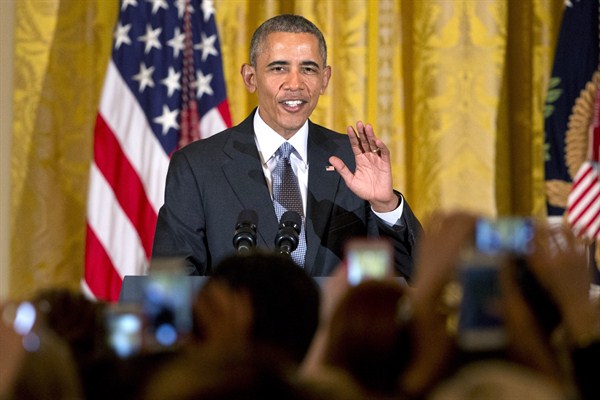Barack Obama took office in 2009 to great expectations, both at home and worldwide. His background and worldview, as expressed in his books, speeches and campaign rhetoric, seemed well-suited to the task of repairing America’s deeply damaged image in the aftermath of the Iraq War and the global financial crisis. With the country’s unipolar moment clearly waning, America would need to exercise a different kind of leadership, using its power in humbler and more consensual ways. Obama seemed like the right person for the job. Some pundits suggested he even had the potential to be a transformational president in terms of America’s foreign policy and its role in the world.
As Jeffrey Goldberg’s widely discussed and engrossing portrait of Obama’s foreign policy legacy confirms, this was clearly the president’s project when he took office. As Goldberg observes, it amounts to a gamble: that the U.S.—and the world—are better off with a more frugal use of American power to shore up regional power balances and the global order. Nearly eight years later, the verdict is still out as to whether Obama’s legacy will indeed lead to permanent changes in America’s foreign policy and role in the world, and whether that gamble will pay off.
The premise behind Obama’s gamble was twofold: That the new multipolar order taking shape could remain a rules-based system promoting liberal trade and, when possible, Western values; and that the best way to ensure that it did was for the U.S. to become a more benign superpower.

